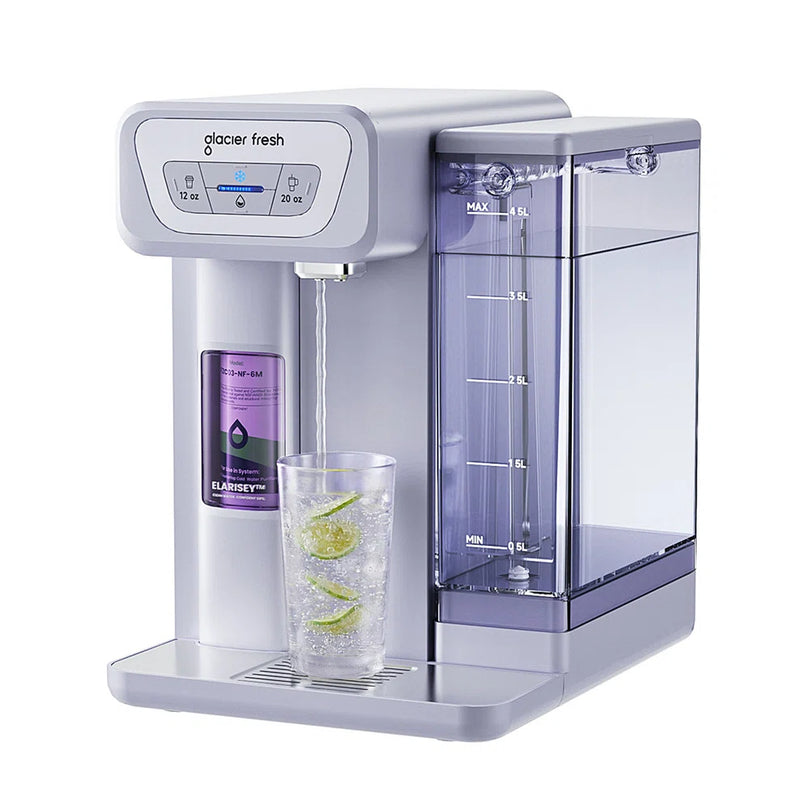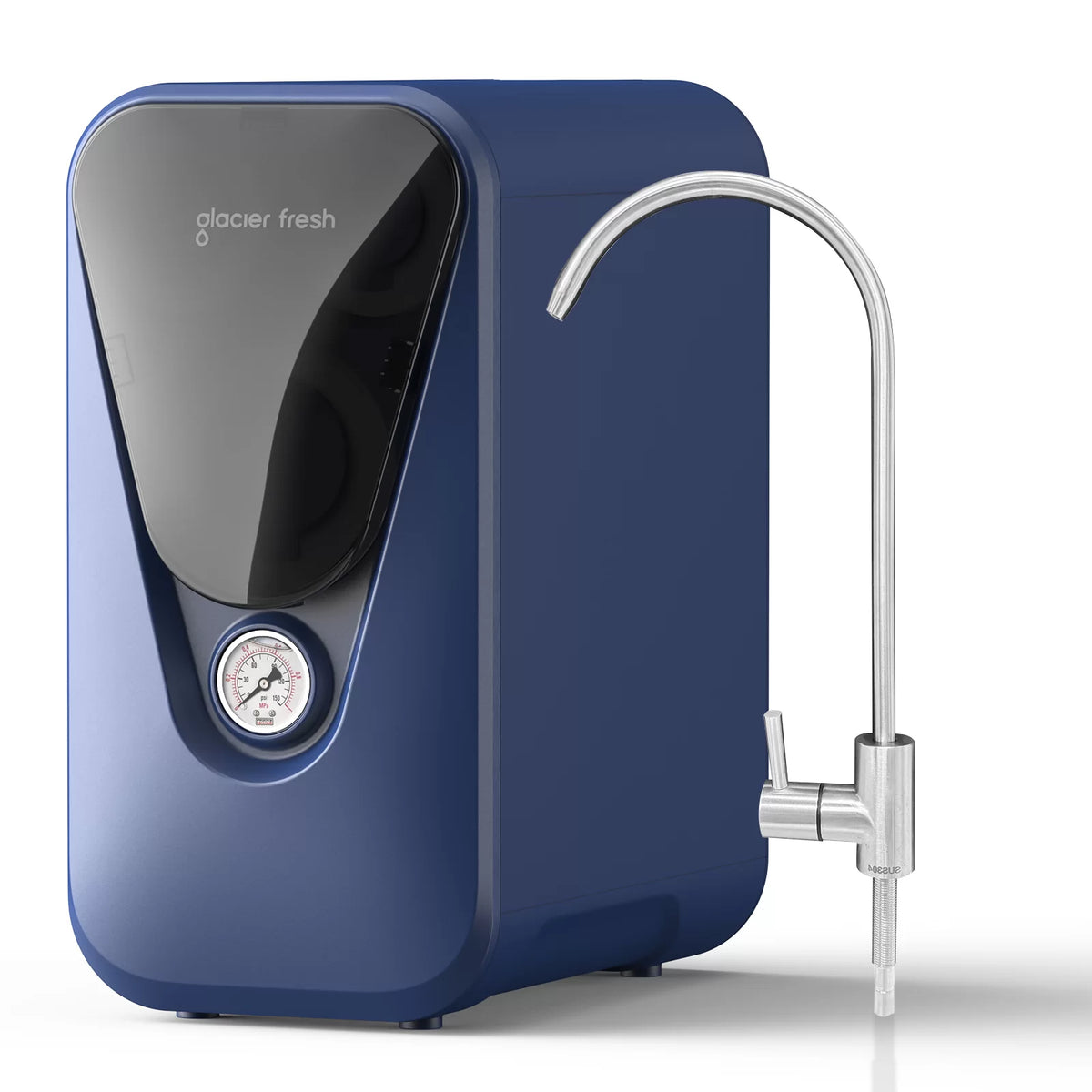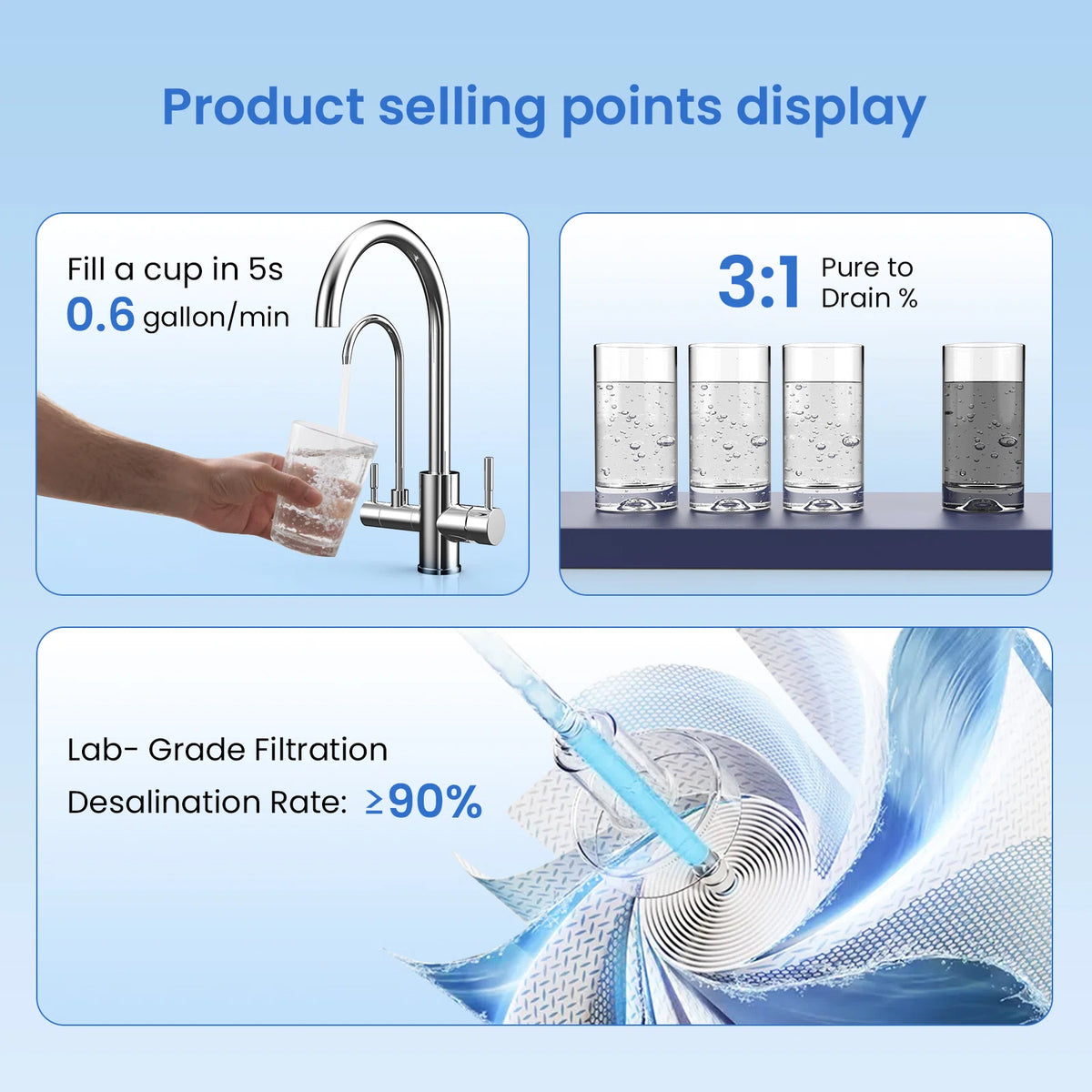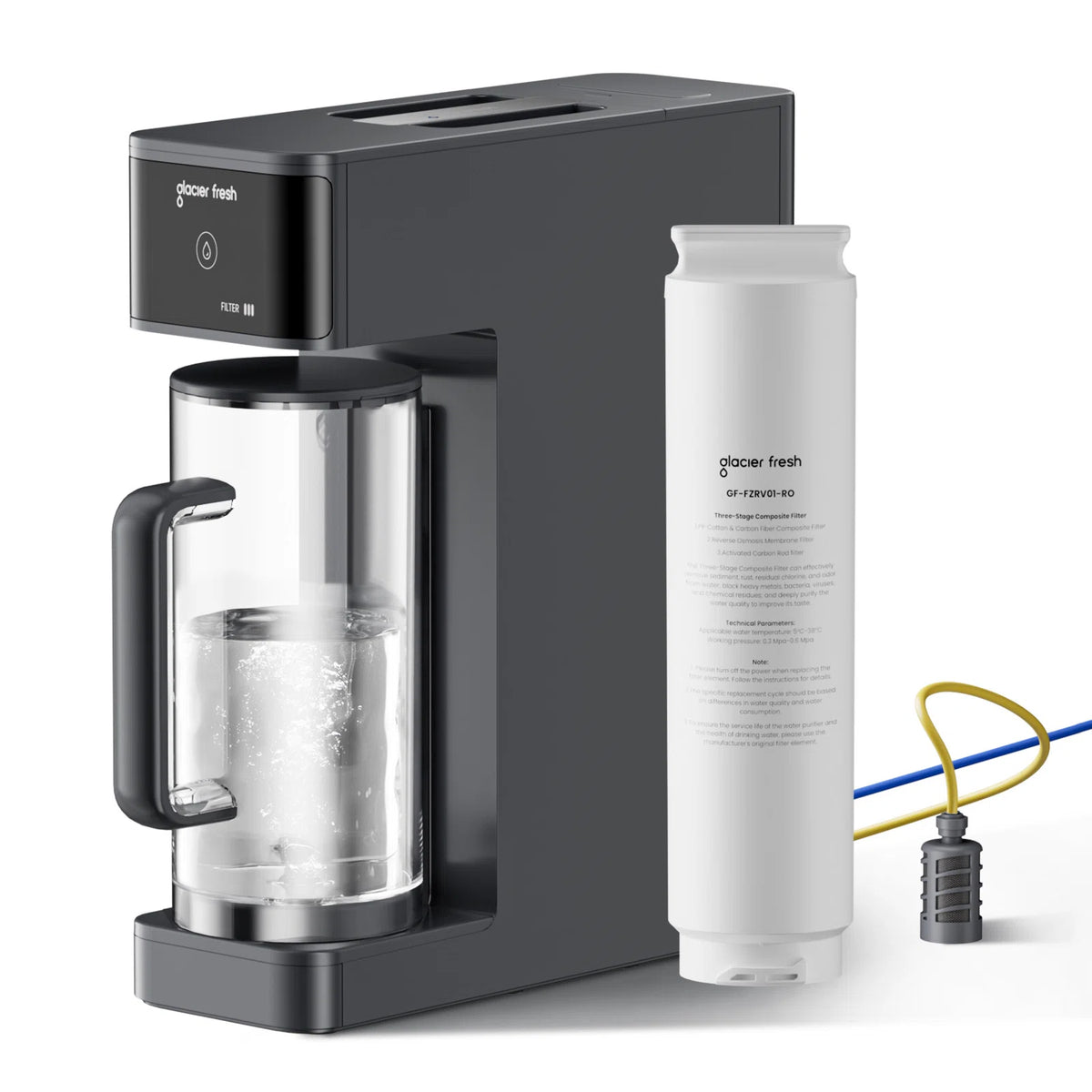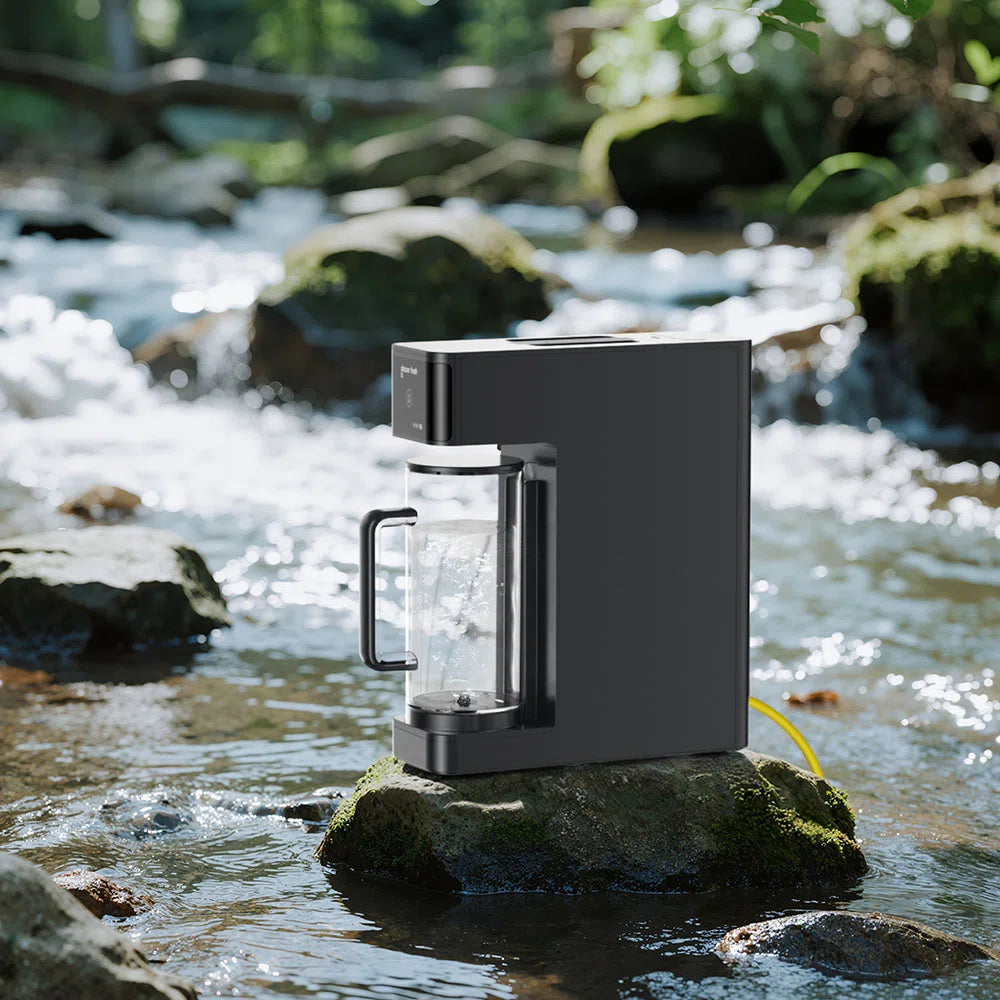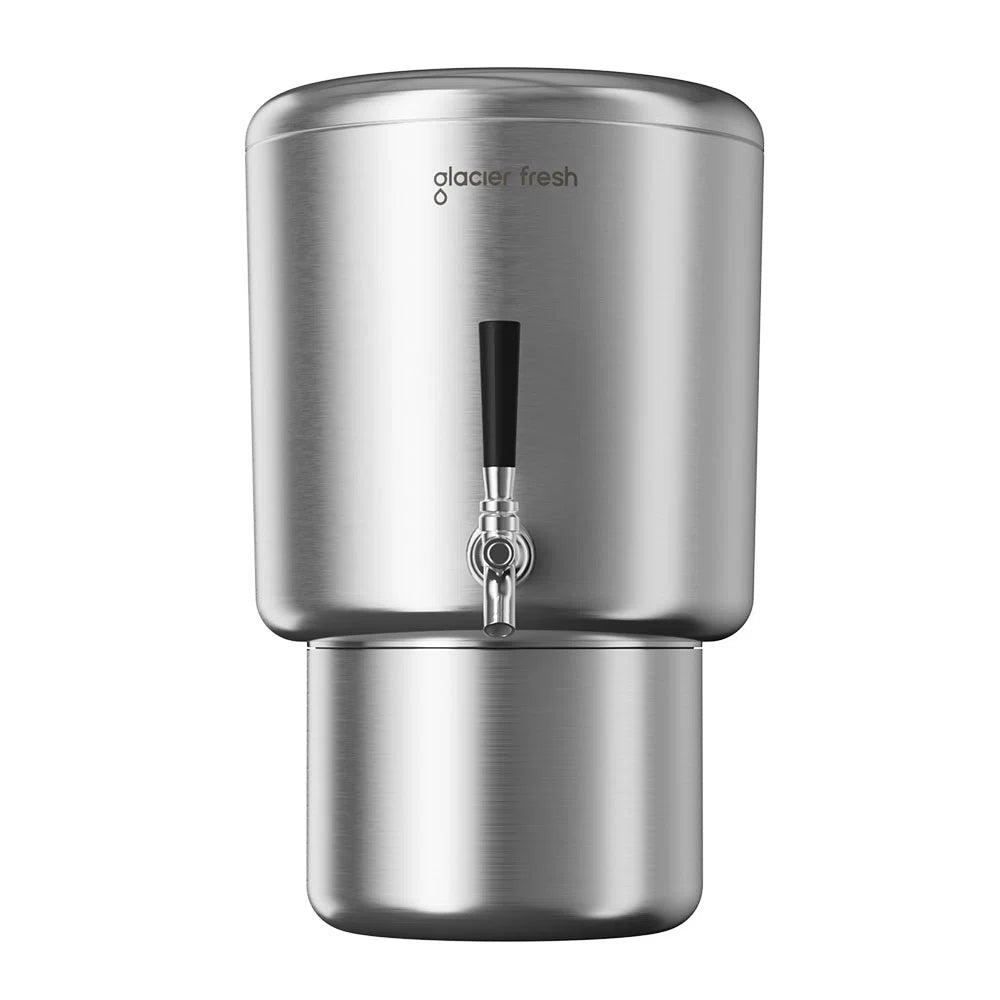Table of Contents:
The connection between aging and dehydration
The symptoms of dehydration in elderly individuals
What are the consequences of dehydration for seniors?
Recommended hydrating drinks for seniors
How to choose the right water filtration system for seniors?
FAQs
Conclusion
Did you know that dehydration is a common problem among seniors? As we age, our bodies become less efficient at regulating water and electrolyte levels, making it crucial for older adults to stay hydrated.
In this article, we will explore the unique hydration needs of seniors and how water filtration can help address these needs. You will learn about the symptoms and consequences of dehydration in elderly individuals and discover recommended hydrating drinks and food options.
Additionally, we will discuss how to choose the right water filtration system to ensure clean and safe drinking water for seniors. So, let's dive in and discover the key to maintaining optimal hydration as we age.
The connection between aging and dehydration

As you age, your body's ability to retain and regulate water decreases, increasing the risk of dehydration. Dehydration prevention becomes crucial as it can have serious consequences, especially for seniors.
Several factors contribute to this increased risk:
- Certain medications commonly prescribed to older adults, such as diuretics or antihypertensives, can impact the body's water balance. These medications may cause increased urine production or make you feel less thirsty, leading to decreased fluid intake.
- Cognitive decline, often associated with aging, can affect your ability to recognize and respond to thirst cues. This can result in inadequate fluid intake.
- Dehydration in nursing homes is prevalent as older adults may rely on caregivers to monitor their hydration levels.
However, due to understaffing or lack of awareness, monitoring can be insufficient, putting seniors at risk.
The symptoms of dehydration in elderly individuals
Dry mouth and throat
Maintaining proper hydration is crucial for seniors, as dry mouth and throat can signal the onset of dehydration. A dry mouth can be uncomfortable and may lead to throat irritation. Here are some key points to help you understand and address dry mouth:
Causes of dry mouth:
- Medications: Certain medications can reduce saliva production, causing dry mouth.
- Aging: Our bodies may produce less saliva as we age, leading to dry mouth.
Treatment for dry mouth:
- Stay hydrated: Drink plenty of water throughout the day to moisten your mouth.
- Avoid certain substances: Limit caffeine, alcohol, and tobacco, as they can worsen dry mouth.
- Use saliva substitutes: Over-the-counter saliva substitutes can help alleviate dryness.
Dark yellow urine
If you notice that your urine is dark yellow, it may be a sign of dehydration, which is a common symptom in elderly individuals. The color of your urine can be a helpful indicator of your hydration levels. Normally, urine color should be a pale yellow or straw-like color, indicating that you're well-hydrated. However, when you're dehydrated, your urine can become darker in color, ranging from a deep yellow to amber or even brown.
There are several causes of dark urine, including not drinking enough fluids, certain medications, and medical conditions like kidney stones or urinary tract infections. Monitoring your urine color can give you valuable insights into your hydration status, and making sure to drink enough water can help maintain a healthy urine color.
Dizziness or lightheadedness

One of the symptoms of dehydration in elderly individuals is dizziness or lightheadedness, which can significantly impact their daily activities and overall well-being. Understanding the causes of these symptoms and their prevention and treatment is crucial for maintaining their health.
Causes:
- Inadequate fluid intake: Not drinking enough water can lead to dehydration and dizziness.
- Medications: Certain medications can cause dizziness as a side effect.
- Underlying health conditions: Low blood pressure or inner ear problems can contribute to lightheadedness.
Prevention:
- Stay hydrated: Drink an adequate amount of water throughout the day.
- Avoid excessive alcohol and caffeine consumption as they can dehydrate the body.
- Be mindful of medication side effects and consult with healthcare professionals.
Treatment:
- Rehydrate: Drink water or consume hydrating fluids like sports drinks.
- Rest and avoid exertion until symptoms subside.
- If symptoms persist, seek medical attention.
Confusion or disorientation
Addressing confusion or disorientation is crucial when addressing the symptoms of dehydration in elderly individuals. Dehydration prevention is especially important for seniors, as they are more susceptible to cognitive decline and medication effects.
When the body lacks proper fluid balance, it can lead to confusion and disorientation, which can be mistaken for other conditions like dementia or Alzheimer's disease. It is essential to educate caregivers and healthcare professionals about the signs and symptoms of dehydration in the elderly, as early intervention can prevent serious complications such as heat stroke or falls. To emphasize the importance of hydration, consider the following table:

What are the consequences of dehydration for seniors?

By neglecting proper hydration, seniors put themselves at risk of experiencing severe health complications. Dehydration can have a range of consequences for seniors, including:
- Health risks: Dehydration can lead to various health problems, such as urinary tract infections, kidney stones, and constipation. It can also exacerbate existing conditions, such as high blood pressure and diabetes.
- Cognitive decline: Studies have shown that dehydration can contribute to cognitive decline in seniors. It can impair memory, attention, and overall cognitive function, making daily tasks more challenging.
- Medication interactions: Dehydration can affect how medications are processed in the body, potentially leading to ineffective treatment or adverse side effects. Seniors who take multiple medications are particularly vulnerable to these interactions.
- Increased fall risk: Dehydration can cause dizziness, lightheadedness, and poor balance, increasing the risk of falls and related injuries. This is especially concerning for seniors who already have mobility issues or osteoporosis.
- Hospitalization rates: Dehydration is a leading cause of hospitalization among seniors. It can lead to complications that require medical intervention, such as electrolyte imbalances, urinary tract infections, and kidney problems.
Recommended hydrating drinks for seniors

Ensure you include hydrating drinks and foods in your daily diet to maintain optimal hydration as a senior. Staying hydrated is important for your overall health and well-being. Here are some recommended hydrating drinks and nutritious foods to help you stay hydrated safely:
- Water: The best and most obvious choice for hydration. Aim to drink at least 8 cups of water per day.
- Herbal tea: A flavorful and caffeine-free option that can provide hydration without the diuretic effects of caffeine.
- Coconut water: A natural source of electrolytes, coconut water is a refreshing and hydrating beverage.
- Fresh fruits: Many fruits, such as watermelon, oranges, and strawberries, have high water content and can help with hydration.
- Soups and broths: These warm and comforting foods can provide both hydration and nourishment.
In addition to these senior-friendly beverages and foods, here are some hydration tips to keep in mind:
- Drink fluids throughout the day, even if you don't feel thirsty.
- Limit caffeine and alcohol intake, as they can contribute to dehydration.
- Eat a balanced diet with plenty of fruits and vegetables to support overall hydration and health.
How to choose the right water filtration system for seniors?
When selecting a water filtration system for seniors, consider their needs and preferences. Here are three factors to consider when choosing a water filtration system for elderly individuals:
1. Filtered vs. bottled water for seniors:
- Bottled water may seem convenient, but it can be expensive and contribute to plastic waste.
- Filtered water is a more cost-effective and environmentally friendly option.
- It also allows seniors access to clean and safe water at all times.
2. Factors to consider when choosing Glass Water Filter Pitcher for elderly individuals:
- Look for a filtration system that's easy to use and maintain.
- Consider the size and capacity of the system, as well as the type of contaminants it can remove.
- Choosing a system that effectively filters out impurities such as chlorine, heavy metals, and bacteria is important.
3. Cost-effective water filtration options for seniors:
- Various cost-effective options are available, such as faucet-mounted or pitcher filters.
- These options are affordable and provide reliable filtration.
- Additionally, some water filtration systems offer long-lasting filters, reducing the need for frequent replacements and saving money in the long run.
FAQs
Can dehydration accelerate the aging process in seniors?
Dehydration can accelerate the aging process in seniors by affecting their skin, joint health, vision, and muscle strength. It is important to stay hydrated to prevent age-related diseases and maintain overall health.
What`s the recommended fluid intake for elderly individuals?
The recommended intake varies depending on age, sex, and overall health. However, the National Academies of Sciences, Engineering, and Medicine generally suggest that men aged 51 and older should aim for about 3.7 liters (or about 13 cups) of fluid per day. In comparison, women in the same age group should aim for about 2.7 liters (or about 9 cups) of fluid daily.
Can drinking too much water be harmful to seniors?
Drinking excessive water can be harmful for seniors due to hyponatremia risks, water intoxication, renal function, electrolyte imbalance, and fluid overload. It's important to maintain a balanced intake for optimal health.
Conclusion
In conclusion, addressing the unique hydration needs of seniors is crucial for their overall health and well-being. Dehydration can have severe consequences for elderly individuals, so it's important to identify the symptoms and take appropriate measures to prevent it. Providing recommended hydrating drinks and food and choosing the right water filtration system can help seniors stay properly hydrated and maintain their vitality as they age.







